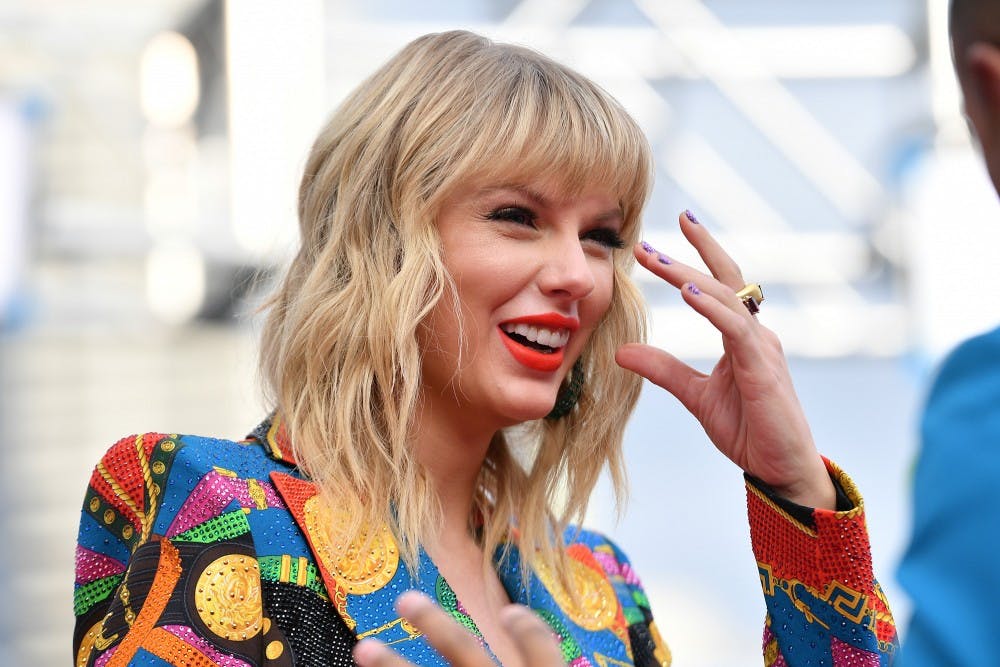If Taylor Swift were alive in the early 19th century, she really would have killed it as a romantic poet. Imagine the scenario: Swift, dying of consumption, looking out the window over the Piazza di Spagna in Rome, writing tender yet desperate poems and letters to the lover she had to abandon. She would certainly give Keats a run for his money — Swift could easily write "Ode to a Nightingale," but Keats could never write "You Belong with Me."
Unfortunately Swift didn’t get to have this romantic historical experience, but all the better for us because we get to experience her work in the contemporary age. Despite the trials and tribulations of her career and reputation, she will be regarded as one of the best musicians, and specifically writers, of our time.
The way that music is analyzed in the panopticon of celebrity pop star culture is different than the way we might analyze, for example, a novel. In the public space, it’s easy to divorce an author from their work, as we usually never even see their face outside of the inside of a book jacket, much less do we read on Twitter about what outfit they wore in public and who they are dating.
That isn’t to say that nobody is properly conducting music criticism because lots of people are. It’s just easier to ignore the music theorists and journalists in favor of gossip and public spectacle. Taylor Swift isn’t just a songwriter; she’s Taylor Swift, and it’s hard to figure out exactly what that means. Ultimately, we don’t need to separate her from her work, and in fact it might be counterproductive to do so, especially when the genius of her lyrics are in their unflinching genuine detail and personality.
First and foremost, we have Taylor Swift the public figure, which is inevitable with her level of fame. On Aug. 23, Swift released her seventh album, "Lover." Even before that, she has been relevant in public discourse for the majority of the past year, whether it be for losing the rights to her masters or her political activity.
For most of her career, that is to say, up until last year, Swift has been silent when it came to politics. This isn’t too uncommon for celebrities, but for a young woman with such a large, impressionable fanbase, it is understandable to hope for her to make some kind of positive influence. At its best political silence is unhelpful, but at its worst, it is complicity.
The political rhetoric surrounding Swift has changed for the better, though, as she took action last October by supporting the Democratic candidates in her home state of Tennessee. She has kept up with the activism since then, promoting the Equality Act, an anti-discrimination bill for the federal protection of the LGBT community.
This image of Swift is something we can’t divorce from the Swift who is writing these songs. Ultimately she is intelligent, mature and begging to be taken seriously. We can see this in both her successes and her failures.
Her career is now in an interesting place. She is so entrenched in the spotlight of celebrity culture that it is difficult to analyze her music for what it is and take her career seriously — and this is something Swift has noticed, too. In her recent interview for Vogue, it was noted that Pitchfork never reviewed her album "1989," but still covered Ryan Adams’s cover of the album. It should be stated that men covering music by women in an attempt to make it more serious and artistic is the absolute worst. Naturally, after being called out in this interview, Pitchfork reviewed all of Swift’s albums they previously ignored.
The ratings were relatively high, with Swift’s fourth album, "Red," scoring a prestigious 9.0. Pitchfork is not the objective arbiter of music’s inherent quality, but I can’t help but agree with the review.
The reviewer Brad Nelson said this about “All Too Well,” which is perhaps the best song of Swift’s entire career: “She reanimates a feeling instead of reacting to it, exploring all the howling negative space a person leaves behind when their shadow recedes — the things you talked about, the kinds of attention you gave each other, the arguments you had, the rooms where you held onto each other desperately.”
It is an interesting exercise in thought to imagine what Swift’s career might be like if she were a man, and obviously this is something that she thinks about often, too. Her new album features a track called “The Man,” with the lyrics, “I'm so sick of running as fast as I can, wondering if I'd get there quicker if I was a man.”
No matter your opinion, it can’t be denied that it would be easier for society as a whole to recognize the genius of Swift’s writing without all of the misogynistic hangups about her personality. At the same time, she is one of the world’s most powerful white women, so she already has insurmountable privilege over her nonwhite peers in that respect. Because of that, I’m not demanding that she be taken seriously, or for you to change your mind if you dislike her. I’m only here to praise the beautiful writing and songs I love very much.
Besides, Shakespeare never could have hoped to write lines more poignant than “You call me up again just to break me like a promise, so casually cruel in the name of being honest.”






